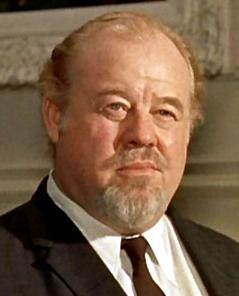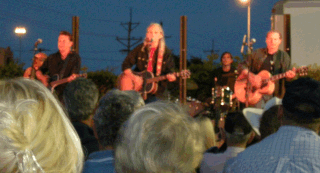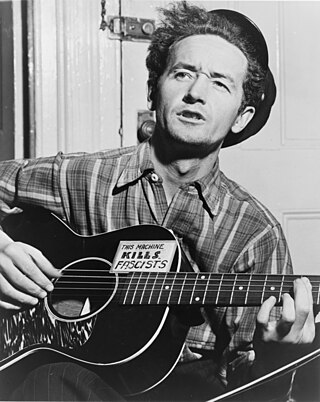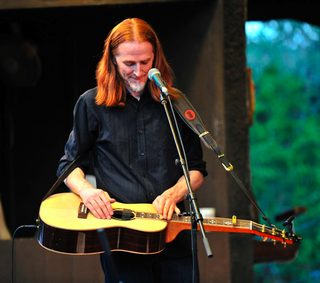Biography
Early life and education
Chris Vallillo (born August 3, 1954, in Hammond, Indiana) grew up the son of a civil engineer who often moved the family, living in many parts of the U.S. Great Lakes region. Given a Kay Archtop guitar at age ten, while the family lived near Detroit, home of the Motown Records studios, Vallillo was inspired by folk musicians, such as Mississippi John Hurt and John Fahey.
In college, Vallillo met another folk musician, Steve Elliott, a banjoist, and they later formed a bluegrass band, The Granite Mountain Sluice Box Boys, named after a local landmark, and played college venues and parties. He completed his degree course at Beloit College in Wisconsin, and worked as an archaeologist for the next three years at Western Illinois University in Macomb, Ill. There, he joined the country rock band Poker Flatts as sound engineer. Later he became a full-time member of the Carthage, Ill., country rock band Bear Creek and began writing songs and focusing more on music than on archaeology. Invited by Ken Carlysle to join his band, The Cadillac Cowboys, Vallillo spent the next five years as their guitarist and singer, performing often throughout the Midwest, with occasional gigs in New York City and in Key West, Fla.
1980–1990
In 1980 the band released the album "Live At The Black Stallion." The band had four songwriters – Vallillo, Ron Kimbrow, Ken Carlysle and Lonnie Ratliff – and went on to release a string of 45 rpm singles. Pedal steel player Marty Muse, who has been based in Austin for many years, was a band member during the early eighties. Vallillo left the band in late 1983 and began working as a soloist. In his early days as a solo act, Vallillo performed songs by writers such as Guy Clark, Townes Van Zandt, Gram Parsons and Jerry Jeff Walker, but gradually brought his own compositions into sets, particularly after making the transition to folk venues. In 1985, Vallillo was a New Folk finalist at the Kerrville Folk Festival.
In 1987, Vallillo released his first recording of original music, "The Western Illinois Rag." The recording sessions took place in Experimental Music Studio at the University of Illinois at Champaign, home of the first electronic music in the early 1960s. Support players included a fifteen-year-old fiddle player, Alison Krauss, and members of the original Union Station. There are currently plans to reissue the recording on CD. The following year, Vallillo served as the director of The Schuyler Arts Folk Music Collecting Project for the Illinois Arts Council and the Schuyler Arts Council. This Project was carried out in conjunction with the Library of Congress Folklife Centre. He interviewed and recorded oral histories and performances from the last of the pre-radio generation in Western Illinois. The collection was accepted into the Library of Congress Folklife Archives in 1988.
His song "Goodbye Independent Trucker" and his instrumental "The Western Illinois Rag" were both included in a documentary about Bushnell, a small Illinois town.
1990–2000
In 1990, Vallillo was invited to become the performing host and co-producer of what became the award-winning syndicated radio program "Rural Route 3," a live musical performance show recorded with a studio audience. The program featured some of the finest names in acoustic and singer-songwriter music. Vallillo hosted and performed on each program along with two musical guests. During the seven year run of the show, these guests included Bob Gibson, John Hartford, Alison Krauss and Union Station, John Gorka, Tom Russell, Tish Hinojosa, The Austin Lounge Lizards, Norman and Nancy Blake, John McEuen, and Trout Fishing in America. At its peak, the show was heard on over 60 stations from Boston to Puerto Rico to Alaska. It remained on the airwaves till 1998. In 1995, the program gained the National Federation of Community Broadcaster's Bronze Reel Award. In its final season, the National Federation of Community Broadcasters awarded Rural Route 3 its Special Merit Award.
During this time, Vallillo composed, performed, and recorded the soundtrack music to the 13-part TV series "Illinois Historic Panorama" [1992/93]. He also went on to pen the theme song and soundtrack music for the 22-part TV series "The Civil War and Reconstruction" [1993/94] and continued to perform and tour full-time.
2000–present
During the early 2000s, Vallillo continued to perform throughout the Midwest. In 2001, he was again tapped by the Illinois Arts Council to conduct fieldwork, this time for the Illinois Mississippi River Valley Project, documenting the work of artists along the section of the Mississippi River that passes through the state. In 2003, he produced and hosted the Illinois Mississippi River Valley Project Festival featuring performers documented in the first phase of the project.
In 2006, Vallillo hosted and performed on Chicago Public Television's Arts Across Illinois Centerstage, Live! That year, he also took on the first of two tours as the Illinois State Scholar for New Harmonies, the Smithsonian Institution's traveling exhibition on Roots Music.
Throughout this time, Vallillo continued to perform and record full-time. His first project was "The Western Illinois Rag." It was followed in 1990 by "The Putnam Museum Concerts," a recording drawn from a series of concerts given by Vallillo in Davenport, Iowa, and focused on material documented in the first collecting project.
In 1995, between taping sessions for the "Rural Route 3" program, Vallillo teamed up with Grammy-winning producer Rich Adler, and traveled to Nashville to work on a new, original music project. The result was the 1995 release "Best Of All Possible Worlds" which featured some of the finest acoustic players in Nashville – folks like Roy Huskey Jr. on bass, Kenny Malone on drums, Rob Ikes on dobro, David Schnaufer on dulcimer, and Andrea Zahn on violin. "Best Of All Possible Worlds" was well received and generated airplay across the US and Europe.
In 2001, a family tragedy led Vallillo to return to his rural roots to record "Aural Traditions" [2001]. This recording also marked his move into the bottleneck slide style of playing, and featured music written and played between the 1860s and the 1930s by folks like Stephen Foster, The Carter Family, and Jimmie Rogers. Vallillo cut the tracks in his home studio, then mixed them at First Bass Audio in Macomb, I!linois. "Aural Traditions" marks the first of an ongoing series of self-produced recordings.
His 2005 release, "The Dance," represented a return to original and contemporary singer-songwriter material. Like "Aural Traditions," “The Dance" was recorded in Studio 13, his home recording studio, but for the first time, this project was mixed there as well. It contains seven original tunes, plus songs by John Gorka, Garnet Rogers, Greg Brown, Joel Mabus, and Stephen Foster, and was released in the early summer of 2005.
Immediately following the 2005 release of "The Dance," Vallillo began researching, writing, and performing a one-man show on the life of Abraham Lincoln. The resulting project, "Abraham Lincoln in Song," would go on to receive the endorsement of the Abraham Lincoln Bicentennial Commission, and resulted in a recording of the music from the show. The recording would go on to chart at No. 10 on the Billboard Bluegrass Album Charts in March 2008, and received excellent critical reviews.
Vallillo performed that show at hundreds of venues across the country, including the Abraham Lincoln Presidential Museum, the Gerald R. Ford Presidential Museum, The Krannert Center for the Performing Arts, The Ravinia Festival, The Gettysburg National Battlefield Museum, and President Lincoln's Cottage (Lincoln's summer White House).
Following the success of the Lincoln show, Vallillo turned towards a new project. He began to write and record his follow-up album, "The Last Day of Winter." He performed the nine instrumentals and four original songs in this collection on his own extensive collection of vintage instruments. These included a 1924 Gibson Tenor Lute, a 1936 wood bodied Dobro, a 1929 National Triolian (the oldest known to exist according to National Guitars), and a custom made reproduction of a turn-of-the-century Lyon and Healy nine-string parlor guitar.

Burl Icle Ivanhoe Ives was an American musician and actor with a career that spanned more than six decades.

John Cowan Hartford was an American folk, country, and bluegrass composer and musician known for his mastery of the fiddle and banjo, as well as for his witty lyrics, unique vocal style, and extensive knowledge of Mississippi River lore. His most successful song is "Gentle on My Mind", which won three Grammy Awards and was listed in "BMI's Top 100 Songs of the Century". Hartford performed with a variety of ensembles throughout his career, and is perhaps best known for his solo performances where he would interchange the guitar, banjo, and fiddle from song to song. He also invented his own shuffle tap dance move, and clogged on an amplified piece of plywood while he played and sang.

BeauSoleil is a Cajun band from Louisiana, United States.

Sam Chatmon was a Delta blues guitarist and singer. He was a member of the Mississippi Sheiks. He may have been Charley Patton's half-brother.
The Archive of Folk Culture was established in 1928 as the first national collection of American folk music in the United States of America. It was initially part of the Music Division of the Library of Congress and now resides in the American Folklife Center.
Alan Jabbour was an American musician and folklorist, and the founding director of the American Folklife Center at the Library of Congress.

Dick Siegel is an American singer-songwriter, guitarist, and visual artist. A long-time resident of Ann Arbor, Michigan—where he graduated from the University of Michigan in 1971—Siegel's debut album SNAP! appeared in 1980, featuring the song "Angelo's," a fan favorite celebrating an iconic local breakfast spot. He won the Best New Folk Artist award at the 1991 Kerrville Folk Festival as well as awards at the Napa Valley Songwriting Festival for his songs "What Would Brando Do?" and "Angels Aweigh." Multiple Detroit Music Awards led to his induction in the Detroit Music Hall of Fame.

The Flatlanders are an American country band from Lubbock, Texas, founded in 1972 by Jimmie Dale Gilmore, Joe Ely and Butch Hancock. The group garnered little success during their brief original incarnation from 1972 to 1973, but when the individual members found success in their solo careers, interest in The Flatlanders was rekindled with the band reuniting several times since. An earlier incarnation of this band was known as The Double Mountain Fork Of The Brazos River Boys.

Thomas George Russell is an American singer-songwriter. Although most strongly identified with the Americana music tradition, his music also incorporates elements of folk, rock, and the cowboy music of the American West. Many of his songs have been recorded by other artists, including Johnny Cash, The Texas Tornados, k.d. lang, Guy Clark, Joe Ely, The Sir Douglas Quintet, Jason Boland, Nanci Griffith, Katy Moffatt, Ramblin' Jack Elliott, Sailcat, Iris Dement, Dave Alvin, and Suzy Bogguss.

James Madison Carpenter, born in 1888 in Blacklands, Mississippi, near Booneville, in Prentiss County, was a Methodist minister and scholar of American and British folklore. He received his Bachelor of Arts and Master of Arts degrees from the University of Mississippi, and the Doctor of Philosophy degree from Harvard in 1929. He is best known for his substantial work collecting folk songs in England, Scotland and Wales. He recorded well-known singers and musicians that other folklorists had documented, as well as some never recorded before or since such as Bell Duncan, whose repertoire consisted of some 300 songs, including 65 Child ballads. His collection methods included Dictaphone recordings as well as transcriptions of lyrics.
Marce Lacouture is an American folk music and cajun recording artist and song writer.

The American folk music revival began during the 1940s and peaked in popularity in the mid-1960s. Its roots went earlier, and performers like Josh White, Burl Ives, Woody Guthrie, Lead Belly, Big Bill Broonzy, Richard Dyer-Bennet, Oscar Brand, Jean Ritchie, John Jacob Niles, Susan Reed, Paul Robeson, Bessie Smith, Ma Rainey and Cisco Houston had enjoyed a limited general popularity in the 1930s and 1940s. The revival brought forward styles of American folk music that had in earlier times contributed to the development of country and western, blues, jazz, and rock and roll music.

Archie Green was an American folklorist specializing in laborlore and American folk music. Devoted to understanding vernacular culture, he gathered and commented upon the speech, stories, songs, emblems, rituals, art, artifacts, memorials, and landmarks which constitute laborlore. He is credited with winning Congressional support for passage of the American Folklife Preservation Act of 1976, which established the American Folklife Center in the Library of Congress.

Terri Ann Hendrix is an American singer-songwriter, multi-instrumentalist, and independent artist who has been writing and performing an eclectic mix of Americana genre, encompassing folk, pop, country, blues, and jazz, since 1990. Since 1998 Hendrix has been based in and near San Marcos, Texas, living as of 2021 in nearby Martindale, after growing up in San Antonio, Texas.

Pat Wictor is an American blues and folk musician, guitarist, singer-songwriter, and recording artist. Known for his ethereal style, he was nominated for Emerging Artist of the Year in 2006 by the Folk Alliance, and has released a number of solo albums. In 2010 Wictor co-founded the folk trio Brother Sun, with singer-songwriters Joe Jencks and Greg Greenway, and the band has since released two full albums and toured extensively. Wictor also has an extensive discography as a sideman, playing instruments such as lap slide guitar and dobro. He currently resides in Brooklyn, New York.

Marc Douglas Berardo is an American singer-songwriter. He was born in Port Chester, New York, and raised in Rye, New York. Berardo is a notable alumni of the Iona Preparatory School in New Rochelle, New York. His songwriting and performing career began while attending Northeastern University in Boston, Massachusetts. His songwriting and performing career began while attending Northeastern University in Boston, Massachusetts and was fine tuned as a staff performer at the Milltop Tavern and Listening Room, St Augustine, FL from 1989 to 1995. Berardo is also known as a member of the Northeast country rock group, Chris Berardo and the Desberardos.

Clark "Bucky" Halker is an American academic, music historian, labor activist, singer and songwriter who specializes in American folk music. Halker is best known for his work on labor protest songs, Illinois folk music, and his involvement with the preservation of Woody Guthrie's musical legacy. He is a recipient of the American Folklife Center's Archie Green Fellowship.

Eddie Cusic was an American Mississippi blues guitarist, singer, and songwriter. His small body of recorded works includes some erroneously credited to "Eddie Quesie" and "Eddie Cusie". Cusic had musical connections with Little Milton and with James "Son" Thomas.
Kenneth S. Goldstein was an American folklorist, educator and record producer and a "prime mover" in the American Folk Music Revival.
Judith McCulloh was an American folklorist, ethnomusicologist, and university press editor.















